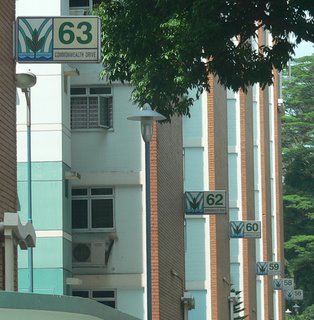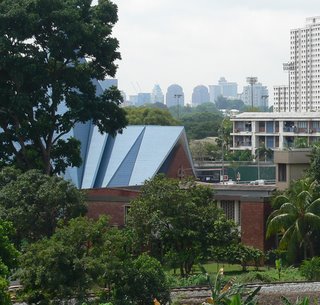Let's Wait And See - Again .
After GE 2001 copied and commented on PM Lee's promises for the new term.
Here, I copy the post GE 2011 speech and promises to review in 2016.
Let's wait and see...
----------------------------------------------------------------
SPEECH BY PRIME MINISTER LEE HSIEN LOONG AT THE SWEARING-IN CEREMONY HELD IN THE STATE ROOM, ISTANA ON 21 MAY 2011
Mr President
Ministers and Members of Parliament
Fellow Singaporeans
1. We have just gone through a watershed general election. Almost all the seats were contested, for the first time in decades. Many Singaporeans were voting also for the first time. Singapore has entered a new phase in its political development.
2. In a rapidly changing world, Singapore is evolving too. Our economy has developed, and our society is changing: from the retirees who experienced our independence struggles in the 1960s, to the generation which grew up with the rapid economic growth of the 1980s, to the teenagers of the 2000s who have never known a world without the Internet. Each successive generation has different life experiences. They see our history differently, view current social issues from their own perspectives, and dream new dreams of their future.
3. The Government cannot stand still. It must evolve in tandem with our society and our people. That is the best way for our Government to serve and to govern, in accord with the spirit of the times and the aspirations and hopes of our people.
4. Our politics cannot remain static either. More interest groups and alternative views have emerged, competing for support. Our political system can and must accommodate more views, more debate and more participation. At the same time, it is absolutely crucial for Singaporeans to stay united on the big issues, understand the fundamental realities facing a small country in Southeast Asia, and work together to develop and implement the best solutions for our country.
5. We must develop a political system and political values that work for Singapore, foster good government and benefit Singaporeans both today and in the long term. Even though we now have more diverse voices, Singapore politics should not become confrontational or worse divide our people and society, like in some other countries. My government pledges to serve the widest possible spread of our society. We are committed to inclusive growth, and a cohesive Singapore. We will do our utmost to work with Singaporeans to create an exciting and fulfilling future for our people and our young.
6. I thank the voters of Singapore for giving me and my team a clear mandate to implement our programmes – to grow the economy so that we can create better jobs for all; to educate our young to their full potential; to care for our older generation; and to engage our citizens to build an outstanding city and home for every one of us. All these we will now do.
7. At the same time, it is clear that Singaporeans do have significant concerns over both the substance of Government policies and the way they are implemented. There are anxieties over specific areas such as housing, healthcare and immigration. Many groups want the Government to be more responsive to their difficulties and predicaments – retirees, single parents, the middle class and young adults, even students.
8. In implementation, our approach must be more flexible, thoughtful and compassionate. No policy can cover all contingencies. Hence policies must be carried out with judgment, and with heart. Policies are meant to make our lives better. When they have unintended consequences, we should put things right promptly. When we make mistakes, we must admit and correct them. We must always do what is right for Singaporeans, and Singapore.
9. We will address all these concerns of the people.
10. My first step is a new Cabinet to lead Singapore in this new phase. I have comprehensively reshuffled and refreshed my Cabinet team. Many experienced ministers have retired. They have done much to bring us thus far, especially the former Prime Ministers Mr Lee Kuan Yew and Mr Goh Chok Tong. I thank them all for everything that they have done for all of us. In their place we have a younger team, reinforced with several first-term office-holders. We will work closely with Singaporeans to take the country forward in a complex and challenging external and domestic environment.
11. Secondly, the Government will engage all segments of society – young and old, students, workers and retirees. We will reach out online and in the real world. We will listen carefully to different voices, understand the day-to-day difficulties and strains facing Singaporeans, address their concerns and be open to inputs on what Government can do better. Realistically, we cannot fulfil every request, or accept every suggestion. But by engaging Singaporeans in an inclusive dialogue on making policies and governing Singapore, we can solve our problems better, and shape our new Singapore together. This is vital.
12. Thirdly, we will take a totally fresh look at our problems and policies, and rethink what is necessary and best for Singapore’s future. We will address the issues preoccupying Singaporeans, such as healthcare, housing, and immigration. We will review both the policies and their implementation, as well as our broader approach to tackling these issues. We must move quickly to address pockets of urgent need, even as we think through the more difficult long-term challenges. Though Singaporeans trust that our policies are mostly sound, nothing should be sacrosanct.
13. One important area for review is political salaries. We will always need committed and capable ministers. Politics is not a job or a career promotion. It is a calling to serve the larger good of Singapore. But ministers should also be paid properly in order that Singapore can have honest, competent leadership over the long term. I know that Singaporeans have genuine concerns over the present salaries. Hence I am appointing a committee to review the basis and level of political salaries. The committee will be chaired by Mr Gerard Ee, Chairman of Changi General Hospital and Chairman of NKF.
14. Beyond dealing with these issues, we should focus our energies on our main task: building a bright future for our people. What Singapore has achieved thus far is remarkable. It is not just about good GDP growth, but how growth has transformed and improved the lives of most Singaporeans and their families – workers getting better jobs, low income people breaking out of poverty, students getting better education. We all enjoy better housing, transport, healthcare, leisure facilities, and much more. Provided we continue to work in partnership – government and people, workers and businesses – I am confident we will progress year by year, and achieve inclusive growth to realise the hopes and aspirations of our people and our next generation.
15. I pledge to work together with all Singaporeans to create a just and fair society, which gives all citizens the best start in life, and leaves no one behind. A Singapore which is open to the world yet puts Singaporeans first. A Singapore which excites our young and respects our old. A society that nurtures and inspires the human spirit, beyond material success. Rich or poor, young or old, men or women, Singapore is our home. Here we all belong. Here we can work together for the common good, and share our pride in being Singaporeans.
16. Fellow Singaporeans, today marks a milestone in our journey to bond as one people and to build a better tomorrow. I call on all Singaporeans to come forth with your ideas and energies, to join our minds, our hearts and our hands to create a better Singa¬pore. We know not what challenges tomorrow may bring. But I am confident that united as one, we will overcome the odds and secure our future together.
Ends

 The blocks were still there, but had been upgraded and looked very different. The open field behind Block 63 had been replaced with a communal structure. The church was still there but it, too, had sprouted additional structures around it.
The blocks were still there, but had been upgraded and looked very different. The open field behind Block 63 had been replaced with a communal structure. The church was still there but it, too, had sprouted additional structures around it.